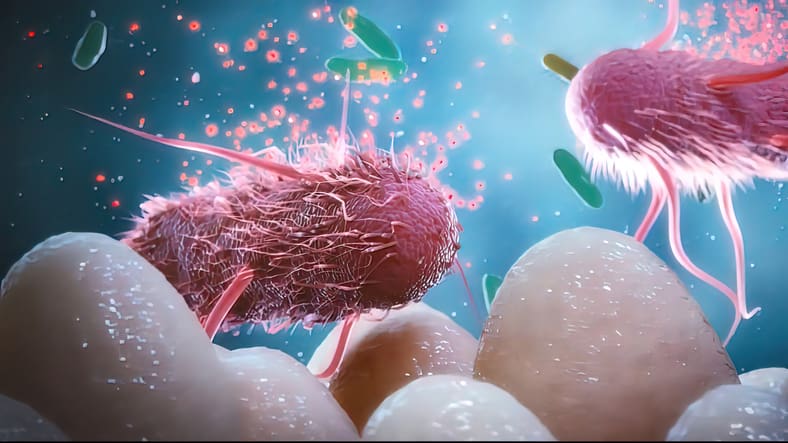You and your Microbiome
The interconnectedness of your gut, brain, immune, and hormonal systems is complex and amazing at the same time. There is one thing that we have learned that affects all of the above – our microbiome.
This complex ecosystem is made up of more than 100 trillion microbes and research has shown that our microflora types are uniquely our own and is affected by diet, health history, geographic location and even our heritage. What we do know is that you must properly balance and care for it if you are to be healthy now and in the future.
We have even learned that your microbiome may be the reason why you can not lose weight even when following the exact same diet as someone else that has been very successful.
Here are 5 ways that you can boost the number and diversity of your microbiome.
Exercise
Exercise could boost the diversity of the microbes in your gut. By examining blood and stool samples, researchers in Ireland were able to compare the microbial diversity of professional rugby players with those of healthy men, some of normal weight and some overweight. They found that the athletes, overall, had greater gut diversity than the other men which they attributed to the players’ strenuous exercise
Protein
In the same study above, it showed that the athletes diet were higher in protein (22 percent of calories) compared to 15 to 16 percent of calories from protein the other men consumed daily. The athletes’ microbiomes were not only more diverse, the researchers reported that they were more populous than those of the other men in the study, and included higher levels of a species of bacteria associated with lower rates of obesity and obesity-related disorders.
Eat more Greens
Plant foods are especially helpful for improving your microbial diversity. Why? Because plants give your microbes something to chew on, to break down, to digest and extract the nutrients from – you are literally feeding your resident bugs with their favorite foods and what they need to survive and thrive. It is hard to consume enough plant based foods so I recommend a daily green smoothie. Here is my smoothie recipe book for you to enjoy!
Open the doors and Windows
One of the best, and also most pleasurable ways to increase your microbial exposure is to simply open the windows and let the microbes flow! Welcome them into your home, your car, your office – the more, the merrier, and the better for your microbiome.
Get outside and get dirty
Do some gardening, play outside, go for a walk in nature – do anything that gets you and your microbiome connected with the trillions of microbes in the soil.
Don’t murder your microcrobes
What I mean is don’t kill off your healthy organisms with foods that mess with your microbial balance. Avoid processed foods, genetically modified anything, sugar and wheat. Also, be sure to stay clear from factory-farmed meats, which come loaded with antibiotics that kill the bad and the good and are not destroyed by cooking.
Protect with Probiotics and Pre-biotics
If you have taken antibiotics be sure to re-populate your gut flora with probiotics. Even if you have not taken antibiotics, take probiotics anyway. Doing so will keep your microbiome full of live, beneficial organisms, which will help keep digestion, immunity and overall health on track. Look for probiotics that deliver 15-50 billion live organisms per dose and contain a combination of different strains of Lactobacillus and Bifidobacteria. Multi-Probiotic contains over 15 billion beneficial organisms from lactobacillus and bifidobacterium genera with additional benefits of prebiotic fructooligosaccharides. Take probiotics as directed, once or twice a day, preferably with meals.
You can also enjoy probiotic foods like fermented foods (preferably organic). Sauerkraut, kim chi, kombucha, and pickled veggies encourage the growth of good bacteria. Add to that some pre-biotic foods, those non-digestible short-chain fatty acids that help your good bacteria flourish. To get your dose, try eating more artichokes, garlic, beans, oats, onions and asparagus.
PS
It is also important for your children to enjoy the above and probiotics are safe for children to take.
PSS
Health is contagious, I would be so grateful if you would pass this on to help spread the love and health!
Committed to your Vitality
Dr. Tami
Sources:
Siobhan Clark and Orla O’Sullivan, et al, “Exercise and associated dietary extremes impact on gut microbial diversity,” Gut, doi: 10.1136/gutjnl-2013-306541














